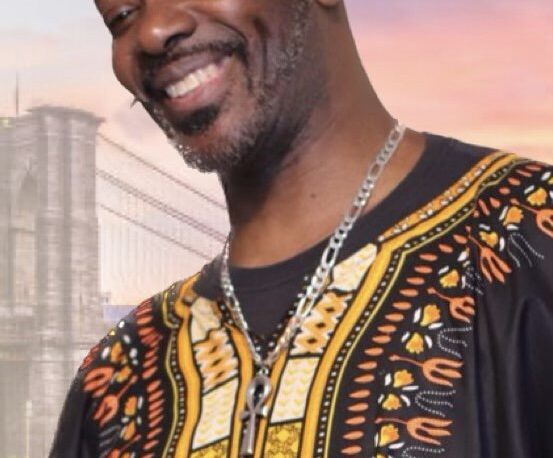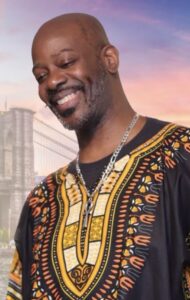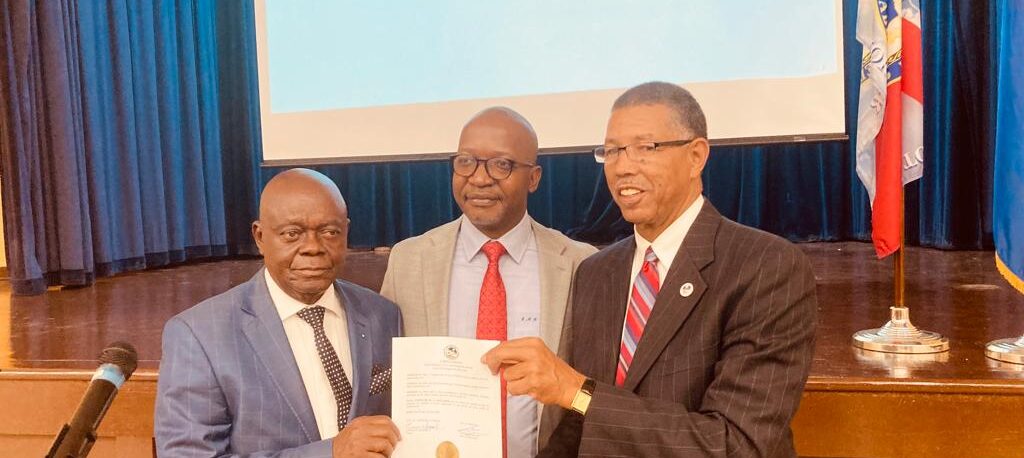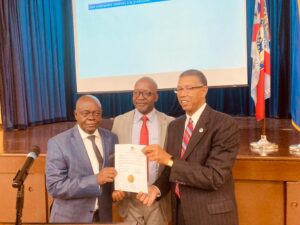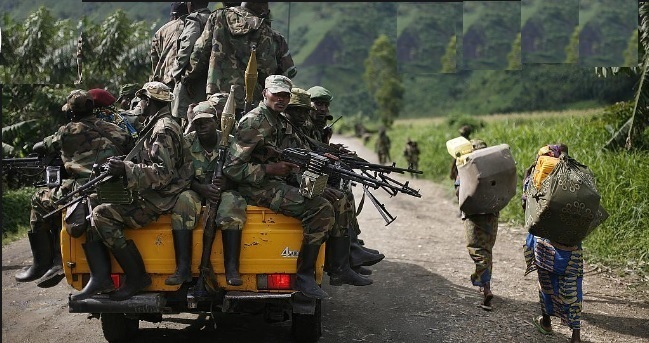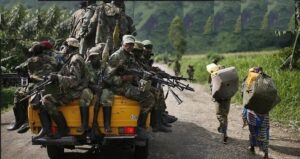This week marks the 22nd anniversary of Rwanda's and Uganda's Six-Day War in the Democratic Republic of the Congo (DRC). Both nations fought each other on Congolese soil from June 5 – 10, 2000 for control of Congo's riches. Hundreds of innocent Congolese in the city of Kisangani perished and scores were injured. The victims of Rwanda's and Uganda's war are still demanding justice nearly a quarter century later. Congolese filmmaker Dieudo Hamadi documents the Congolese victims' valiant pursuit of justice in his award-winning film, Downstream to Kinshasa.
The recent outbreak of
military confrontation on May 22nd between the Congolese military and the Rwanda-backed M23 rebel group represents the latest episode in Paul Kagame's 25-year war of pillage and aggression against the Congolese people. The Congolese military in coordination with a United Nations authorized international force made up of South African, Malawian and Tanzanian soldiers defeated the Rwanda-backed M23 in 2013. A lot of the leadership fled back into Rwanda and Uganda where they evidently have been incubated and reconstituted to launch yet another attack on the Congolese people. The stark reality is that there is no M23 without Rwanda. The Congolese military captured two Rwandan soldiers among the M23 rebels in the latest incursions. Tensions have risen between the two nations and is escalating. According to the Congolese military, Rwanda has recently
dispatched 500 soldiers in the east of Congo alongside the M23 rebels.
Paul Kagame's Rwanda and Yoweri Museveni's Uganda have both invaded the Congo (1996 & 1998), occupied large swaths of the country, and backed and sponsored militia groups such as the M23 in order to sew mayhem and destruction as both nations profit from Congo's riches. In a
2001 report, the United Nations noted
“Presidents Kagame and Museveni are on the verge of becoming the godfathers of the illegal exploitation of natural resources and the continuation of the conflict in the Democratic Republic of the Congo.”Both leaders are able to have their way in the Congo in large part due to the backing they receive from the United States, Great Britain and a number of other Western states. They are authoritarian figures who have been in power for decades - over two decades for Kagame and over three decades for Museveni. They have benefited from U.S. tax payer dollars to the tune of billions in donor aid, military equipment, intelligence, training, etc. In addition, they take full advantage of the diplomatic and political cover provided by the United States in particular, in order to skirt international justice for the mass crimes they have committed in the Great Lakes region of Africa. The exception was Uganda. The International Court of Justice found the Ugandan government culpable for war crimes and plunder in the Congo and order it to pay
$325 million in reparations to the Congo. Rwanda would have likely befallen the same fate if not worse but it is not party to the International Court of Justice and hence outside of its jurisdiction.
The cover and protection that Rwanda has experienced has its origins in the International Criminal Tribunal for Rwanda where
the United States shielded Paul Kagame and his military from prosecution for war crimes and crimes against humanity that they committed during the Rwandan genocide. The crimes that both Kagame and Museveni have committed in the region have resulted in what the United Nations has called the deadliest conflict in the world since WWII and the greatest humanitarian crisis at the dawn of the 21st Century. An estimated six million Congolese perished between
1996 – 2007 due to the conflict and conflict related causes. The United Nations stated in its
2010 Mapping Exercise Report that if the acts committed by Kagame's military in the Congo were to be
"proven before a competent court, could be characterized as crimes of genocide."Because of the impunity, lack of accountability, and lack of justice combined with the tacit endorsement of Western powers of the criminal actions by Paul Kagame, he has been able to sew murder and mayhem not only in the Congo but in different parts of Africa. He has
dispatched assassins in several countries (Kenya, South Africa, Belgium, Netherlands, and England to name a few) in order to silence or assassinate dissidents. South Africa responded forcefully in 2014 by
expelling three Rwandan diplomats as a result of Kagame sending his henchmen to assassinate former Rwandan colonel and dissident, Patrick Karegeya. Even today, Kagame recently
kidnapped a Belgian Citizen and US resident, Paul Rusesabagina, the real-life hero of the movie Hotel Rwanda.
Don Cheadle who played Rusesabagina is a part of a campaign to free the hero who courageously saved lives during the Rwandan genocide. Rusesabagina's family has
filed a law suit against the Rwandan government for Kidnapping their patriarch.
In spite of Paul Kagame's well documented crimes, he and his government have been rewarded with leadership in institutions like the Commonwealth and the Francophonie. The red carpet is rolled out for him in Ivy League universities in the United States. Sports associations like the National Basketball Association (NBA) and teams like the Arsenal Football Club of London fully embrace him and he is often found at the
World Economic Forum in Davos as a feted guest. The cover that Western governments and institutions have provided to Kagame has enabled him to fight while denying is military’s presence in the East of the Congo and his government’s sponsorship of militia groups like the M23.
In a tweet that he later had to walk back, rationalizing the latest incursion by the Rwanda-backed M23 in eastern Congo, former U.S. Ambassador/Special Envoy for the Sahel & Great Lakes Regions of Africa, Dr Peter Pham is yet another example of how Kagame has been given cover.
However, the DR Congo’s president, Felix Tshisekedi is undaunted. He emphatically
states “The resurgence of this armed movement, which was defeated in 2013 with the confiscation of its military arsenal, can only be due to Rwanda. This is no longer a secret.” Tshisekedi goes further by
calling for justice for the victims of the Rwandan government’s crimes in the Congo through the implementation of the UN Mapping Exercise Report and the installation of an international criminal tribunal on the crimes in the Congo. This is a cause that the Nobel Peace Prize Laureate, Dr. Denis Mukwege has long
championed.
The Chair of the African Union, Senegalese president
Maky Sall said he has spoken to both Paul Kagame and Felix Tshisekedi. He has called for a peaceful resolution to the crisis. Regional efforts to deescalate the conflict are also being led by Angolan President João Lourenço as head of the International Conference on the Great Lakes Region (ICGLR).
The U.S. government’s Secretary of State, Antony Blinken has
called for dialogue, which is for all intents and purposes reasserting the status quo of the past quarter century whereby Paul Kagame backs militia groups in the Congo while skirting accountability. As the U.S. government calls for dialogue, the Congolese people are demanding justice and an end to the carte-blanche given to Paul Kagame by the U.S. government while he sponsors atrocities in the Congo.
U.S., UK and EU citizens can play a key role in demanding that their governments cease the military and financial support they lavish on Paul Kagame. Citizens can help put an end to the diplomatic and political cover their governments have provided the Rwandan strongman for past quarter century of criminal wars of aggression Kagame has waged against the people of the DR Congo.
FOTC Team!

